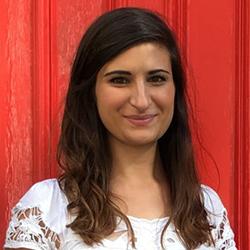I am a researcher working on developing new experimental models of early embryo development. To do this, we are culturing mouse and human embryonic stem cells (ESCs) in the lab, under conditions that promote differentiation and development. Instead of culturing cells as a flat layer of cells on plastic dishes, so that the cells sit ‘side-by-side’ to one another, we are putting cells together into a floating 3D suspension, that allows cells to interact with one another, in a system called a ‘gastruloid’. This is because these cellular aggregates mimic some of the developmental features and milestones of the embryo, including ‘gastrulation’ whereby cells differentiate into derivatives of the 3 germ layers of the embryo and are organized in space and time. Because we develop these in culture, we can use methods including microscopy and gene expression sequencing to start to probe these structures, and since we grow them in a medium-throughput way we can explore various modulation techniques like drug screening and genetic manipulation.
I am principally interested in how in vitro model systems can be used to study fundamental aspects of development, since they represent a simplified system for studying features of embryogenesis in isolation. The creation of such experimentally tractable systems for studying interactive cell behaviours, such as gastruloids and organoids, can allow us to explore new questions that we’d often be unable to study in vivo. It also has the potential to open various ethical questions, social implications and therapeutic opportunities that I am interested to understand further.


